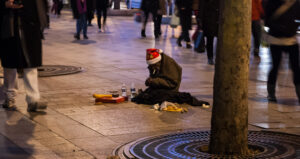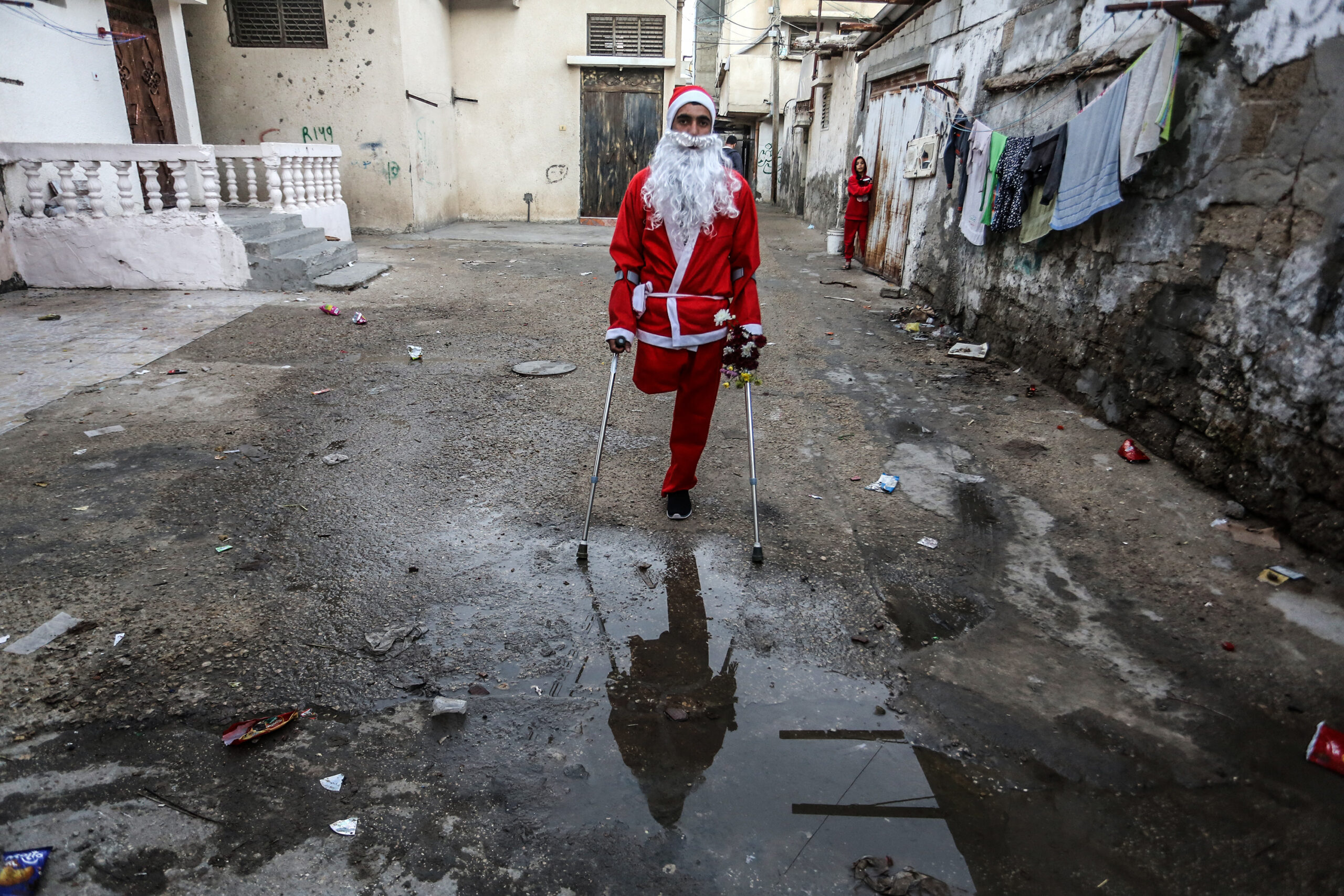Fr Bobby Gilmore recalls an unexpected arrival on Christmas day and challenges us to ask who is being excluded this Christmas?
Just as we are never sure that we love God unless we love our fellow men and women, so too are we never sure that we have love at all unless our love produces works of justice. (Pedro Arrupe SJ)
Christmas in the Philippines is a busy time. It begins with nine days of preparation leading up to the celebration of the birth of Christ on Christmas night. Each morning people gather for a mass at cockcrow, Misa de Gallo. As dawn is breaking people appear out of the darkness leading to the church and at first light, about four thirty, mass begins.
Churches usually cannot contain the crowds attending on these days leading up to Christmas. On Christmas night the church and surroundings overflow with people in a festive mood. Then again on Christmas morning the church and plaza are overflowing with people.
This is a day when people bring their babies for baptism. They celebrate the baptism of the child in association with the birth of Jesus. Usually, we priests are busy up until midday. Then having completed all the various tasks we sit down for the Christmas meal. This is usually comprised of chicken or pork or fish, rice and a variety of vegetables.
Filipinos have a great capacity to make a tasty meal out of very little. The consumerism of the west is only apparent in affluent urban areas and much of the affluence is imported.
One Christmas Day when all had gone home, or so we thought, we sat down for the Christmas dinner. Just as we were about to begin, an extended family, men, women, children and a dog had made their way into the ground floor of the rectory and seeing the stairs to where we lived proceeded to climb up and enter the living and dining area of the rectory.
Their clothes and general physical demeanour indicated abject hunger and poverty. Their clothes hung off their bones. They were bare-footed and gaunt. They had hungry stares.
We got them seated, got extra plates and shared the meal with them. As we conversed with them we discovered the area in the hills where they lived. They were tenants on land that belonged to wealthy people living down the street from the rectory. We knew these landowners. Their house was not ostentatious nor was there any evidence of opulent livestyles. Yes, they were comfortable, had Catholic high school and university education.
One would have gleaned from conversations with them that they were intelligent people and from observation would have lived pious lives. Yet, these poor, emaciated people were their tenants who worked and maintained their properties. I have no doubt that as landlords they visited their property regularly and had to be aware of the living conditions of their people.
As landlords they would have taken their share of the fruits of the property in the form of coffee, coconuts, bananas spices and vegetables. But, how could they have been unaware of the dismal condition of their tenants?
Sadly, one of the characteristics all too often experienced in graduates of Catholic education is the absence of a social conscience and social awareness generally that would lead to just relationships between employer and employee. This characteristic is present in spite of the fact that social teaching of the Catholic Church has been in the public arena in specific encyclical teachings for more than a century.

An old man begs on Avenue des Champs Elysees in Paris, France. Image: Shutterstock
One may ask the question, why is this? All too frequently the European Christian churches and by extension their global affiliates have been and indeed still are associated with wealth, power and aristocracy. History is a witness to the European church role in colonisation and its hesitation to question power and its abuse.
This was particularly evident in western supported dictatorships during the last century. Of course on a regular basis there are teachings and statements about unjust structures but these statements supported by biblical teaching have largely been ignored and have not permeated the commercial high streets of corporate finance, the local church or the values of those who manage the financial systems.
Note the fines imposed on the global financial institutions in the recent past. I am sure that many of the people managing these systems are well-educated pious people.
Nevertheless, in the face of modern injustice, Church leadership seems to be more comfortable promoting a devotional brand of Christianity much of which has no basis in scripture. It concentrates on rescuing the victim rather than asking the question, why are there victims? Surely, if one is rescuing people on a beach one has to ask, why are they coming ashore and who is pushing them in?
Who are being excluded this Christmas?
Fr Bobby Gilmore writes and campaigns on migrant issues. He was ordained in 1963 and worked in the Philippines from 1964-1978. From 1978 to 1992 he was Director of the Irish Emigrant Chaplaincy in Britain. He was on mission in Jamaica between 1992 -1999. On returning to Ireland, he founded the Migrants Rights Centre Ireland.

